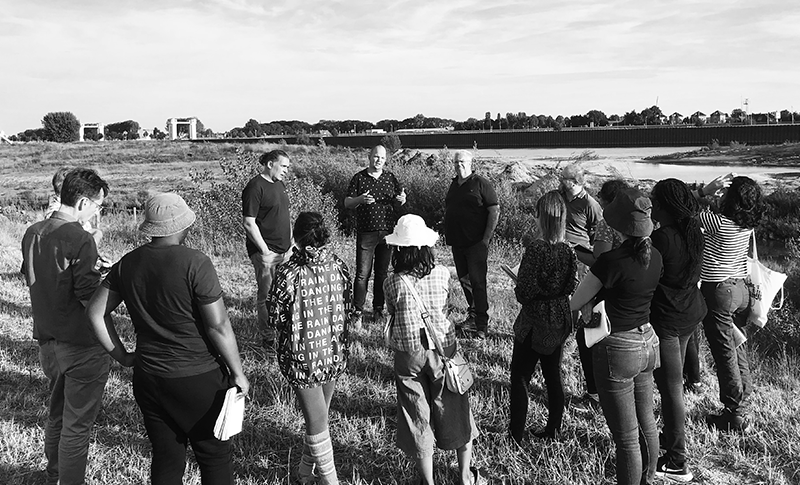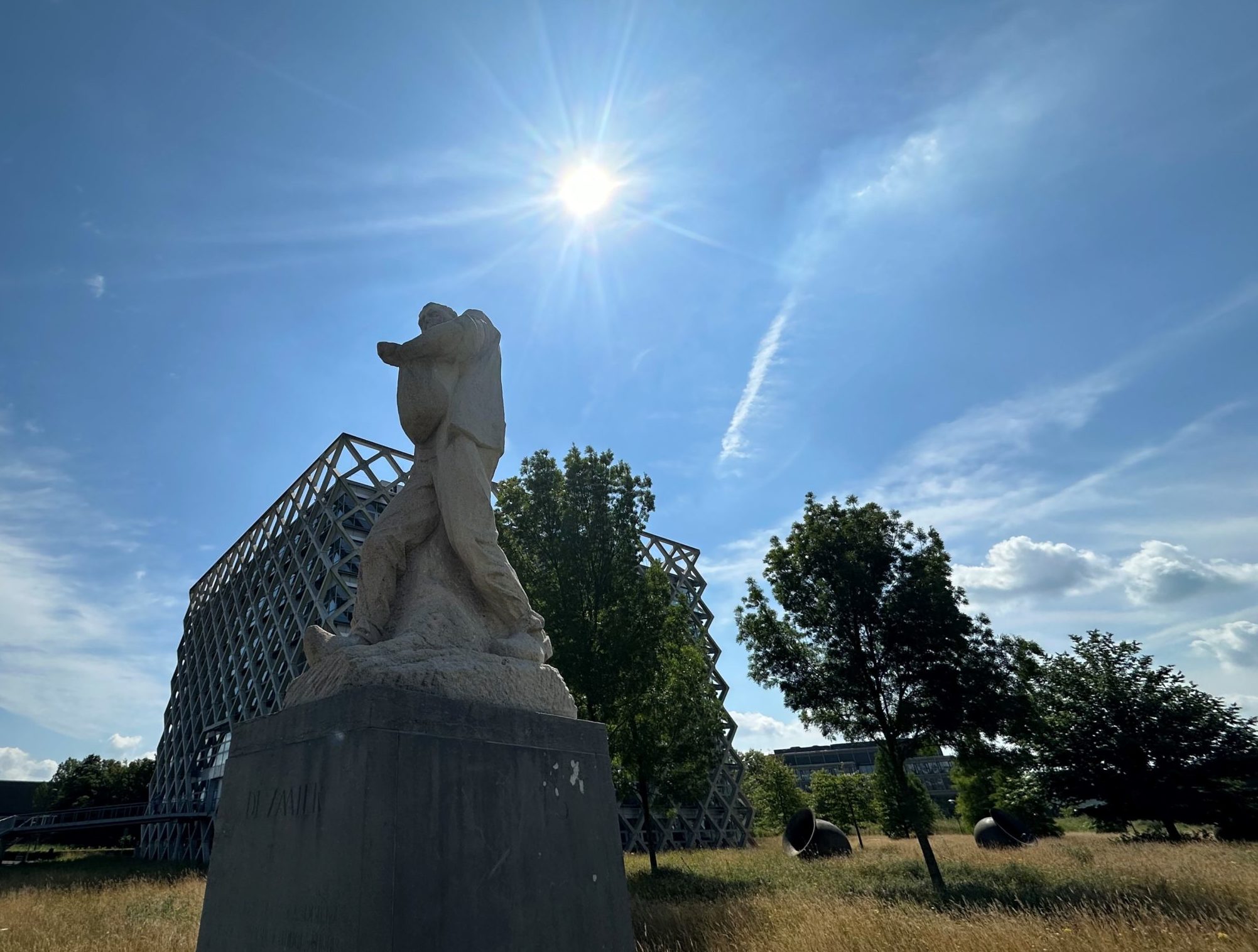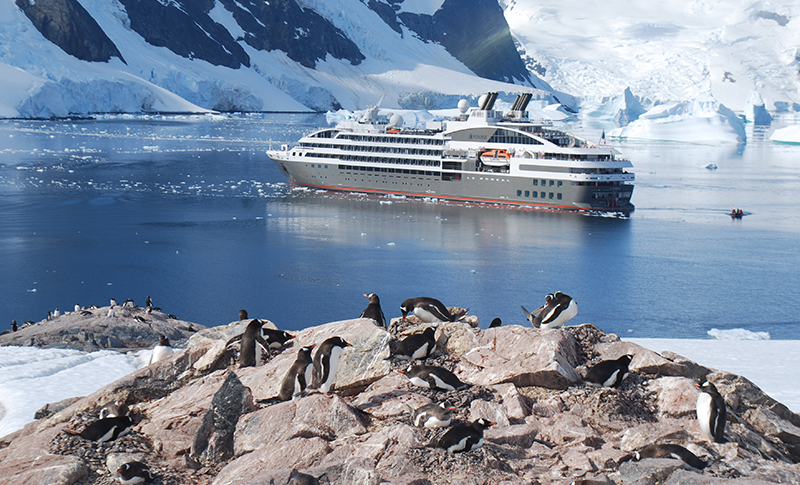Interdisciplinarity always pushes the right buttons in grant applications, articles and strategic plans, but what does it mean in practice? Resource asked two researchers how they collaborate with other disciplines, what it takes and what they get out of it.
‘When I joined WUR 20 years ago, people tended to work in silos,’ says Rutgerd Boelens (Water Resources Management). ‘People did work on the same issues but in their own world, with its assumptions and methods, and with no integration.’ Boelens studies the interaction between water management, technological interventions and social justice. ‘What a dam does to a river is a complex question. It involves nature, fishers, farmers, local communities, culture, the economy and policy. If you want to understand the river, you’ve got to collaborate with people outside your field of expertise.’
Looking beyond your own field is important to ecologist Lisa Becking (Aquaculture and Fisheries) too. She leads the INREF project INREEF, which aims at a healthy balance with tourism in marine natural parks such as coral reefs. The project involves expertise from both the social sciences and the natural sciences, and from non-profit organizations (NGOs), local village leaders and policymakers. ‘A natural park is a socio-ecological system, connected both above and below the water,’ says Becking. ‘You won’t arrive at a complete solution starting from a single discipline. You only see part of the picture and the partial solution that leads to may even be harmful.’ Many Wageningen topics – like the transition to sustainable agriculture, or achieving healthy eating habits – need to be approached from several angles. It is not for nothing that the motto is ‘Finding answers together’. But how do you get beyond fine words?
New science
Truly interdisciplinary work means setting a number of preconditions, says Boelens. The first is to recognize that the different knowledge systems involved are of equal value. In his Riverhood (ERC) and River Commons (INREF) projects, Boelens works with indigenous and local groups, farmers, NGOs, governments and scientists, each with their own expertise. ‘Scientists sometimes look down on other forms of knowledge,’ says the researcher. ‘We make it a condition for cooperation that people are open to other forms of knowledge. To promote that, we organize training courses, discussions and continuous scientific self-reflection.’
Another requisite is that experts give up some of their own control, methods and comfort zone in the interests of integration with other disciplines, says Boelens. ‘After all, you are shaping a new science with new ways of thinking and researching.’
Dashboard
That integration does not materialize of its own accord. Becking and Boelens have devised systems for it. The PhD students in their projects are supervised by three or four supervisors from different disciplines, with at least one supervisor coming from the country where the research takes place. In Becking’s INREEF, for example, they have two supervisors from the natural sciences, and the third is an economist or sociologist. ‘Especially when drafting the research question, that person can keep a sharp eye on the cohesion across the various PhD projects.’
In terms of content, Becking’s project enforces integration through the ‘dashboard’: a control panel created by the researchers and other stakeholders for the management of marine parks.
You won’t arrive at a complete solution starting from a single discipline
What happens to the reef when tourism increases due to more hotels? Where does the waste go? Building the dashboard together requires researchers and professionals in the field to keep talking to each other and combining their results, says Becking.
Boelens’ projects look at rivers using four frames: the river as an eco-society, as a territory, as a legal entity and as a social movement. ‘These frames transcend the separate disciplines and require a common focus.’ The project partners also work together in four River Labs with the aim of finding local solutions to problems.
Film festival
Once the system is in place, it is time for participants to get to know each other. Becking prepared for an introductory month in Wageningen for the 14 PhD students from Indonesia and the Caribbean Netherlands. They come from widely varying professional backgrounds and bring their own experience from the field and their work for local NGOs or at universities. ‘As a team, we approached it a bit like course coordination, and it takes just as much time and commitment.’ After field trips, workshops and work on PhD proposals, the month was wrapped up with a film festival of homemade video pitches. The group ate together a lot as well. Becking: ‘Sharing meals brings people together, it forms a bond.’ The month generated strong mutual trust and understanding, Becking observed. ‘There were lively discussions, with lots of energy and fun.’
Long-term
Boelens too underlines the importance of taking the time to build mutual trust. In 2008, he set up the Water Justice Alliance: a group of organizations, universities and companies that research water rights together. ‘You don’t think in terms of four to five years but long-term.’ For each new project, he builds a network around established partners in the alliance, rather than seeking new partners each time.
If there is trust, an interdisciplinary project can make a world of difference. Boelens looks back on a project addressing water conflicts in the Andes. Local people and nature often get a raw deal, while large agricultural and mining companies just carry on regardless with groundwater extraction. ‘Our research explicitly sought to integrate science and the local knowledge of groups that went unheard, such as indigenous people, women and small farmers,’ he explains. Local water users learned new things about water rights from the scientists, and vice versa. ‘That makes it possible to resolve water conflicts more fairly.’

 PhD candidates on the Riverhood and River Commons projects discuss the pollution in the river at the hands of barging companies with the Civil Collective Dreumelse Waard. Photo Rutgerd Boelens
PhD candidates on the Riverhood and River Commons projects discuss the pollution in the river at the hands of barging companies with the Civil Collective Dreumelse Waard. Photo Rutgerd Boelens 

